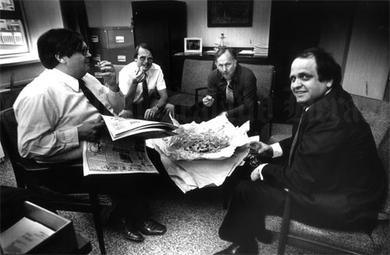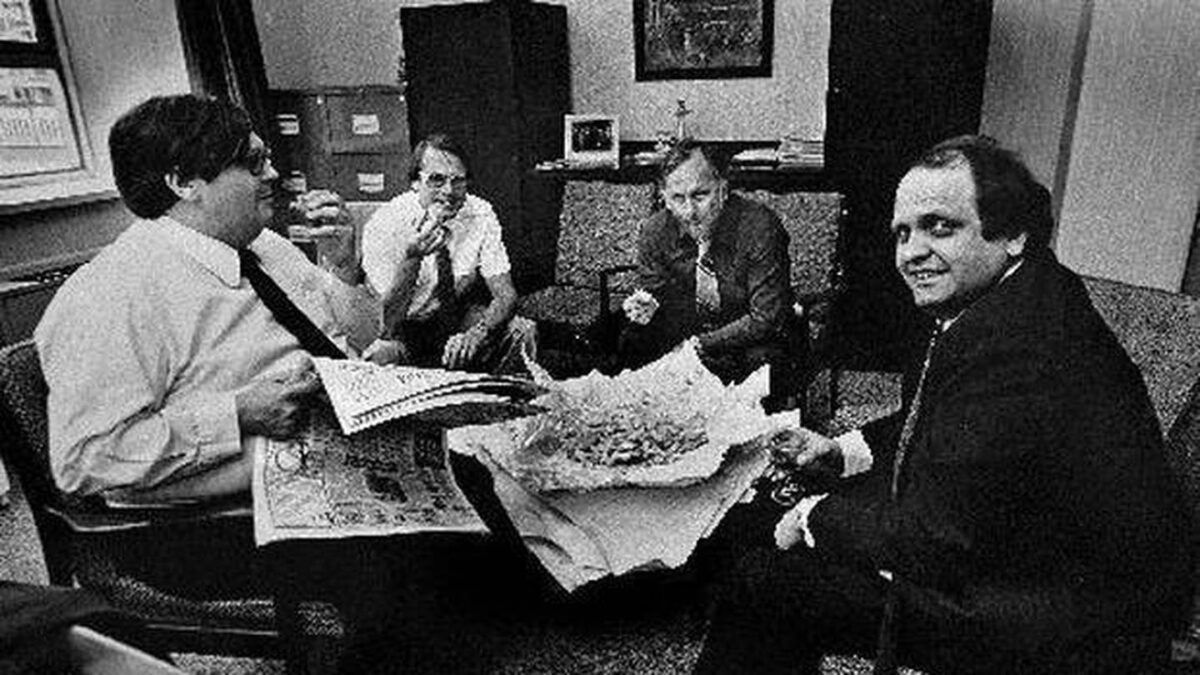Michael Bassett
bassettbrashandhide.com
Political historian Michael Bassett CNZM is the author of 15 books, was a regular columnist for the Fairfax newspapers and a former Minister in the 1984-1990 governments
During my days in Parliament, I participated in a few attempted, as well as successful, coups. They aren’t pleasant, certainly not fun. But occasionally they are necessary. At the end of 1980, Bill Rowling was floundering as leader of the Labour opposition. He’d been defeated at two general elections and Labour had fallen into third place in a major pre-Christmas opinion poll. Muldoon was losing control of his government, inflation was spiking, yet Labour had lost its credibility, and a general election was only eleven months away. A group of my colleagues and I thought it was time to get Rowling to step aside in David Lange’s favour.

Roger Douglas, Richard Prebble, Mike Moore and I set about arranging a caucus vote to force the issue. But it was not to be: we lost the crucial test by one vote, Rowling’s own vote. A huge hullabaloo followed within the party’s ranks. Four of us were labelled the “Fish and Chips Brigade” after we were photographed lunching in Douglas’ office after the failed vote. A few called us traitors; others wished we had succeeded. There were scars within the party for more than a decade. But at the end of 1982 Rowling decided to call it quits, and twenty months later we were in office with Lange as Prime Minister and Douglas as Minister of Finance. That government re-made New Zealand’s economy after Muldoon’s shambolic reign, and our attempted coup in 1980 helped to clarify Labour’s presentational problem.
Many within the National Party will be experiencing the same tensions after Judith Collins’ unceremonious dumping. Like Rowling, her time was up. In fact, it had never really arrived. She had no substantial band of loyalists and was tolerated, rather than embraced by a caucus that had just disposed of its third leader in less than three years. With an election only weeks away, Collins seemed like a possible answer to Jacinda Ardern. To be fair, she did a reasonable job in the 2020 campaign, occasionally bettering Ardern in debates. But it was always hard to divine what she stood for, and still is. Despite many years in politics, Collins never learned to be a team player. She trusted nobody, and her colleagues would often discover her thinking from press releases or off-the-cuff comments to journalists. This was no way to inspire followers who sometimes found themselves dragged along behind, or even pushed in front of, Boadicea’s chariot. As more and more colleagues got angry and rumbles became audible inside her caucus, Collins manufactured a crisis around some bawdy locker-room sexual chatter involving Simon Bridges who was trying to destabilize her. Having chosen to turn ancient history into a present crisis, Collins herself became its immediate victim.
Few parties are over-endowed with leadership talent. National is currently going through a lean period. The John Keys of this world aren’t thick on the ground, and even Bill English, who did a good job in the campaign of 2017, had earlier been a victim in his career of what was tantamount to a coup when Don Brash toppled him in 2003. Two years later, Brash and his colleagues brought National back from its near-death experience, and Key was able to build on Brash’s work. Coups are generally disliked by the public but can often resolve a seemingly intractable problem and open up new opportunities.
Such, I think, will be the challenge for National after Tuesday’s caucus. Right now, there is an air of unreality around the New Zealand political scene. On virtually every count Jacinda Ardern’s government totters around disaster. Child poverty mounts as weak ministers think the best way to handle it is to throw money at it; the vaccination programme was needlessly delayed; legislation gets rushed through which will soon need to be amended, and money is being wasted on many fronts while indebtedness rises. I could list many more disasters…. However, in an act that almost defies the law of gravity, National hasn’t been able to capitalize. To me, it’s all a bit like revisiting 1980. Yes, being in opposition is awful, but the only way out is to have a credible leader with a strategy that will bring erstwhile deserters back to your side at the next election. That requires careful polling analysis and some competent brains, neither of which National has in abundance. The party will need to make the best use of ALL the talent available.
Political inexperience can be a problem as Don Brash discovered after 2003, but in the end, he brought National back from near death, starting after only one year’s parliamentary experience. Christopher Luxon might be able to do the same, although he is unlikely to out-shine ACT’s David Seymour who has a strategy and whose style centres around conversations with the voters.
Please share this article so that others can discover The BFD.

